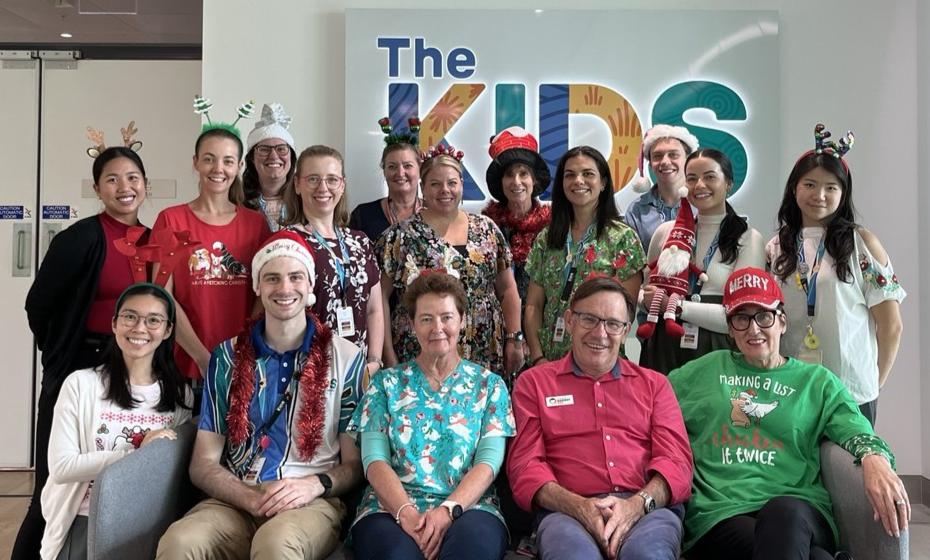Search
Showing results for "clinical trials"
Research
Facial asymmetry in parents of children on the autism spectrumGreater facial asymmetry has been consistently found in children with autism spectrum disorder (ASD) relative to children without ASD. There is substantial evidence that both facial structure and the recurrence of ASD diagnosis are highly heritable within a nuclear family. Furthermore, sub-clinical levels of autistic-like behavioural characteristics have also been reported in first-degree relatives of individuals with ASD, commonly known as the 'broad autism phenotype'.
Research
Safety of live attenuated herpes zoster vaccine in adults 70–79 years: A self-controlled case series analysis using primary care dataNo new safety concerns were identified for live attenuated herpes zoster vaccine in this study based on a novel, Australian primary care data source
Research
Clinical and Molecular Epidemiology of an Emerging Panton-Valentine Leukocidin-Positive ST5 Methicillin-Resistant Staphylococcus aureus Clone in Northern AustraliaRecently, we identified a Staphylococcus aureus sequence type 5 (ST5) clone in northern Australia with discrepant trimethoprim-sulfamethoxazole (SXT) susceptibility results. We aimed to identify isolates of this clone using Vitek 2 SXT resistance as a proxy and to compare its epidemiology with those of other circulating S. aureus strains. We collated Vitek 2 susceptibility data for S. aureus isolates collected through our laboratory and conducted a prospective, case-control study comparing clinical, microbiological, epidemiological, and genomic data for subsets of isolates reported as SXT resistant (cases) and SXT susceptible (controls) by Vitek 2.
Research
Nasal Delivery of Haemophilus haemolyticus Is Safe, Reduces Influenza Severity, and Prevents Development of Otitis Media in MiceDespite vaccination, influenza and otitis media (OM) remain leading causes of illness. We previously found that the human respiratory commensal Haemophilus haemolyticus prevents bacterial infection in vitro and that the related murine commensal Muribacter muris delays OM development in mice. The observation that M muris pretreatment reduced lung influenza titer and inflammation suggests that these bacteria could be exploited for protection against influenza/OM.
Research
Safety, tolerability, and effect of a single aural dose of Dornase alfa at the time of ventilation tube surgery for otitis media: A Phase 1b double randomized control trialOne third of children require repeat ventilation tube insertion (VTI) for otitis media. Disease recurrence is associated with persistent middle ear bacterial biofilms. With demonstration that Dornase alfa (a DNase) disrupts middle ear effusion biofilms ex vivo, we identified potential for this as an anti-biofilm therapy to prevent repeat VTI. First, safety and tolerability needed to be measured.

The year that was 2024!
Research
Advances in Vaccines to Prevent Viral Respiratory Illnesses in ChildrenChildhood vaccination has played a critical role in the reduction of morbidity and mortality from communicable diseases, including specific respiratory pathogens
Research
MK2 inhibition induces p53-dependent senescence in glioblastoma cellsIn response to DNA damaging chemotherapy, targeting MK2 in p53-mutated cells produces a phenotype that is distinct from the p53-deficient phenotype
Research
A reference collection of patient-derived cell line and xenograft models of proneural, classical and mesenchymal glioblastomaWe present a curated panel of 12 readily-usable, cell lines representing the spectrum of molecular subtypes of IDH-wildtype glioblastoma
Research
The influence of incomplete case ascertainment on measures of vaccine efficacyA biologically active vaccine may produce a low measured vaccine efficacy under a range of epidemiological, vaccine-related and logistical conditions
